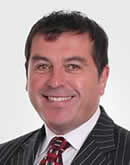 |
| A new policy for prosecution of abuse announced |
We constantly have to advise victims who have tried to have their abuser prosecuted by the police, but, for various reasons, been unable to do so. They thus turn to the civil process in an effort to exact some justice. That is to say, they launch a compensation claim, not to enrich themselves, but so as to do something to right wrongs that were committed in the past.
Keir Starmer talked about the pendulum swinging back to the middle from an over cautious approach. Back in the mid to late 1990's abuse investigations were crude, and new to all professionals alike. That is to say, lawyers, policemen, judges, prosecutors, and psychiatrists/psychologists. It was all so shocking that it was tackled with a moral enthusiasm, that came to be criticised by the allegedly wrongfully accused.
At one time 41 out of 43 police forces had a major abuse investigation in their area. Policemen with children became tasked with responding to and investigating allegations of abuse committed many years ago in various institutions, usually children's homes. The abuse spanned 3 decades from the 60's to the late 80's. It was decided at a very early stage, that if a sex offender was abusing a boy in a children's home, it was very unlikely that it was an isolated offence, and that in all likelihood a career paedophile was at work.
The Police were of course right, in that various men were prosecuted for abusing many victims over periods of years whilst working as care workers in homes. In most homes brutality was also practised in a climate of fear, threats, and intimidation. The victims were vulnerable, and in need of care and affection - they got the wrong type of attention. Instead of being cared for they were abused. The infamous North Wales enquiry is only one of scores of other enquiries which took place.
Eventually an organisation called FACT ("Falsely Accused Care Teachers") united to mount a campaign designed to stop the prosecution of allegedly wrongfully convicted care workers. They teamed up with journalists who specialised in the subject. There was then a Panorama programme by David Rose, for which I was unfairly edited, and wrongfully implicated as an encourager of false allegations.
Closely following thereafter was a Home Office Select Committee Enquiry in 2002, into alleged false allegations. It was motivated by desire to stop the police investigations in their tracks, by discrediting the approach of "trawling" for evidence - the process whereby the police went looking for allegations by contacting as many former residents of children's homes as they could find.
One can read the select committee report on the net. They did not interview any victims, and simply took what the convicted abusers, their supporters, lawyers, and investigative journalists had to say at face value, without realising that they all had an axe to grind. By the time of the enquiry, the police had produced a manual in which the practise of trawling was discouraged, as being the reverse of normal police methods. I gave evidence. I thought the committee would be interested in my suggestions for a change in the law - far from it - they wanted to accuse me of being hand in glove with the police for personal gain, which was not only insulting to my professionalism, but also an insult to my intelligence.
The Home Office rejected the conclusions of the report, but the die was cast. Despite me meeting with the Chief Constable of Dwyfed, who produced the investigator's manual, and pleading him to change nothing, procedure did change, the allegedly falsely accused had won, and the police became "over cautious" in their approach to the investigation of abuse. Between 2002 until the Savile scandal the pendulum had swung too far away from proper investigation.
Keir Starmer is implying that the police will have another look at the process of trawling, which, of course, is a perfectly proper method of investigating a crime. If there is a sex offender on the loose, the police want to find ALL his victims whether or not they have come forward, particularly those who have been attacked and got away. If he was operating in a children's home, it would be quite natural to interview all the residents who had come into contact with him, in an effort to find corroborative evidence. As long as the process takes place properly without encouraging people to make allegations it is perfectly proper, and is not "the reverse of normal police methods"
I have to say that back in 2002, after the select committee enquiry, I feared that we would end up in this position. It is a shame that it has taken Savile to wake everyone up.
What is the solution? Make mandatory reporting of abuse a criminal offence. If there was a legal obligation on those with the care of children to report abuse which they witness, and for the failure to report to be a criminal offence, as it is in all Commonwealth Countries, and even Ruanda, then abuse in the past might have been reported rather than covered up, as it has been in the Catholic church.
I am campaigning hard for a change in the law through support groups and Parliament. Shortly there will be a petition to sign on the Internet. Sign it please.

No comments:
Post a Comment